Essay On Curiosity
Outline of Essay:
- Introduction
- The Nature Of Curiosity
- Importance of Curiosity in Human Development
- The Role Of Curiosity In Personal Growth
- The Impact Of Curiosity On Social Development
- The Downside Of Curiosity
- How to Cultivate Curiosity
Introduction
Curiosity is defined as the innate desire to learn and explore the world around us. It is a powerful force that drives individuals to seek out new experiences and knowledge and has played a crucial role in human development throughout history. In this essay, we will explore the nature of curiosity, its impact on personal and social development, as well as the potential downsides of being too curious.
The Nature Of Curiosity
Curiosity is characterized by a desire to explore, discover and learn new things. Curious individuals are often described as open-minded, imaginative, and inquisitive. They are motivated by a desire to understand the world around them and are not afraid to take risks and try new things. Being curious is associated with several benefits, including increased creativity, improved problem-solving abilities, and enhanced learning motivation.
One of the primary benefits of being curious is that it promotes creativity. Curious individuals are more likely to think outside the box and come up with novel solutions to problems. This is because they are not limited by preconceived notions or traditional ways of thinking. In addition, curiosity also enhances problem-solving abilities. Curious individuals are more likely to identify and analyze problems and develop effective solutions to address them.
Furthermore, curiosity also motivates learning. Curious individuals have a natural desire to seek out information, which helps them to acquire new knowledge and skills. This motivation to learn also extends beyond the classroom and can help individuals to pursue new interests and hobbies.
Importance of Curiosity in Human Development
Curiosity is an essential component of human development. From a young age, humans exhibit a natural inclination towards exploring their environment and learning new things. This innate curiosity helps to facilitate the development of cognitive, emotional, and social skills that are essential for success in life. For instance, curiosity motivates individuals to seek out information, which helps them to acquire new knowledge and skills. Furthermore, it also facilitates the development of creativity, problem-solving abilities, and critical thinking skills.
The Role Of Curiosity In Personal Growth
Curiosity is essential for personal growth as it facilitates the development of self-awareness, creativity, and problem-solving abilities. Curious individuals are more likely to explore their thoughts, emotions, and behaviors, which helps them to develop a deeper understanding of themselves. This self-awareness, in turn, helps them to identify areas for personal growth and development.
The Impact Of Curiosity On Social Development
Curiosity also plays a critical role in social development. It facilitates the development of empathy, cultural competence, and tolerance. Curious individuals are more likely to seek out information about different cultures and perspectives, which helps them to develop a deeper understanding and appreciation for diversity.
Curiosity and empathy are closely related as individuals who are curious about others are more likely to understand their perspectives and experiences. This, in turn, fosters empathy and promotes positive relationships. Furthermore, curiosity also promotes cultural competence, which is the ability to understand and navigate different cultural norms and practices.
Lastly, curiosity also promotes tolerance. Curious individuals are more likely to be open-minded and accepting of others, even if they have different beliefs, values, or lifestyles.
The Downside Of Curiosity
While curiosity is generally considered a positive trait, it can also have downsides. Obsessive curiosity, for instance, can lead to intrusive behavior, which can make others uncomfortable or violate their privacy. Moreover, excessive curiosity can also lead to risk-taking behavior, which can be dangerous or harmful.
Another downside of curiosity is the potential invasion of privacy. In some cases, curiosity can lead individuals to cross boundaries and invade the privacy of others. For example, individuals may engage in snooping, eavesdropping, or hacking to satisfy their curiosity. This can result in serious consequences such as loss of trust, damaged relationships, and even legal consequences.
In addition, excessive curiosity can also lead to risk-taking behavior. While taking risks can be beneficial in some cases, such as in entrepreneurship or adventure sports, it can also be harmful or even life-threatening. Curiosity can lead individuals to engage in risky behaviors without considering the potential consequences. This can lead to accidents, injuries, and even death.
How to Cultivate Curiosity?
Despite the potential downsides of curiosity, it is an essential trait that should be nurtured and developed. Curiosity is the foundation of innovation, creativity, and progress. Without curiosity, we would not have made the technological advancements or scientific discoveries that have transformed the world.
There are several ways to cultivate curiosity. One way is to encourage exploration and experimentation. This can be done by providing opportunities for individuals to try new things and explore their interests. Another way is to ask questions and encourage curiosity about the world around us. This can help individuals to develop a sense of wonder and a desire to learn more.
FAQs
What is the power of curiosity?
The power of curiosity lies in its ability to motivate individuals to seek out new experiences and knowledge, promoting creativity, and problem-solving abilities, and enhancing learning motivation.
Is curiosity a skill or value?
Curiosity can be seen as both a skill and a value. It can be developed as a skill through intentional practice and can also be a value that is deeply ingrained in an individual’s beliefs and attitudes.
Can curiosity increase IQ?
While curiosity may not directly increase IQ, it can enhance cognitive abilities such as creativity, problem-solving, and critical thinking skills, which can indirectly contribute to higher intelligence and intellectual growth.
Download the Pdf of the Essay On Curiosity
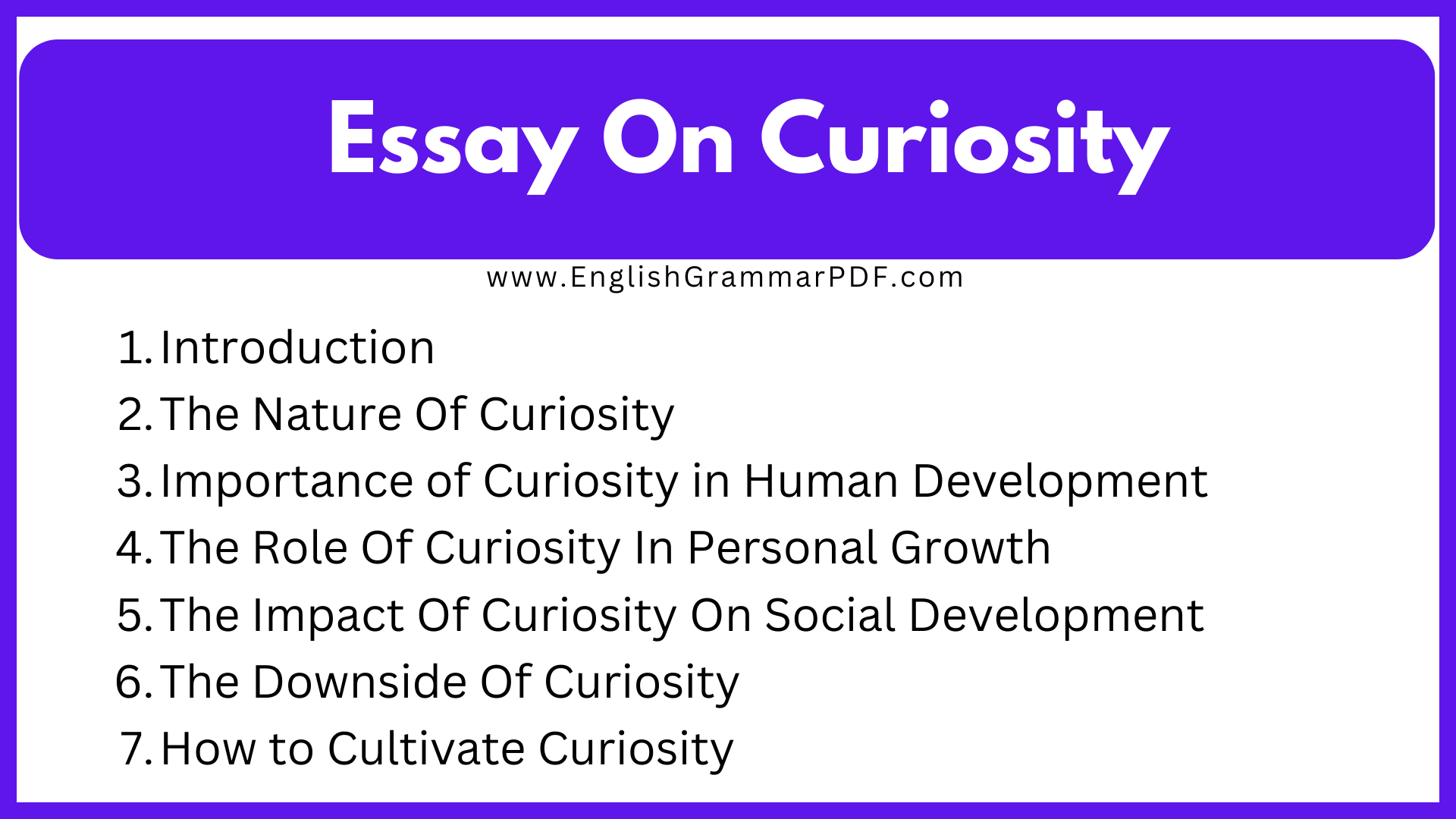
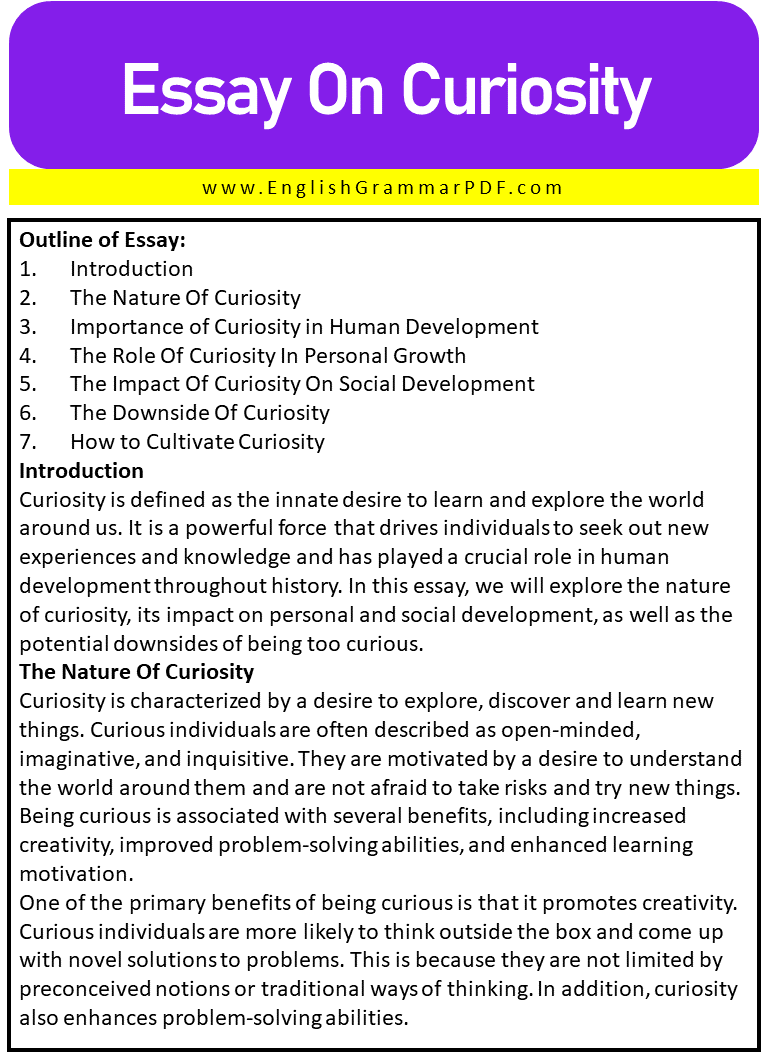
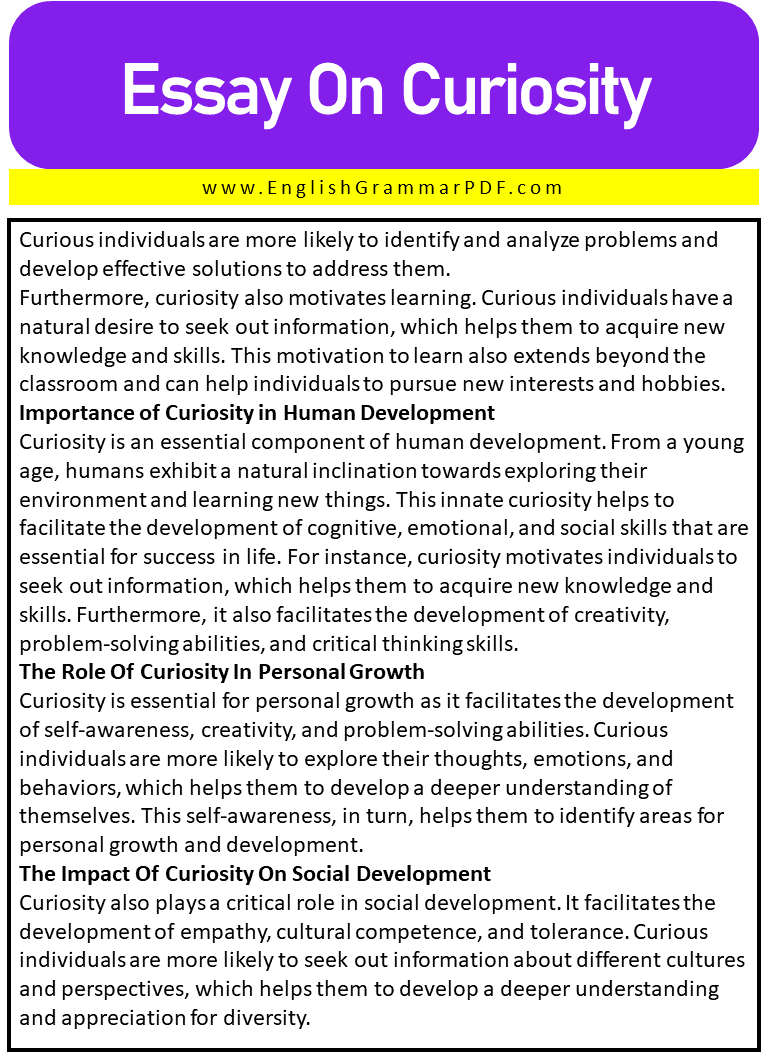
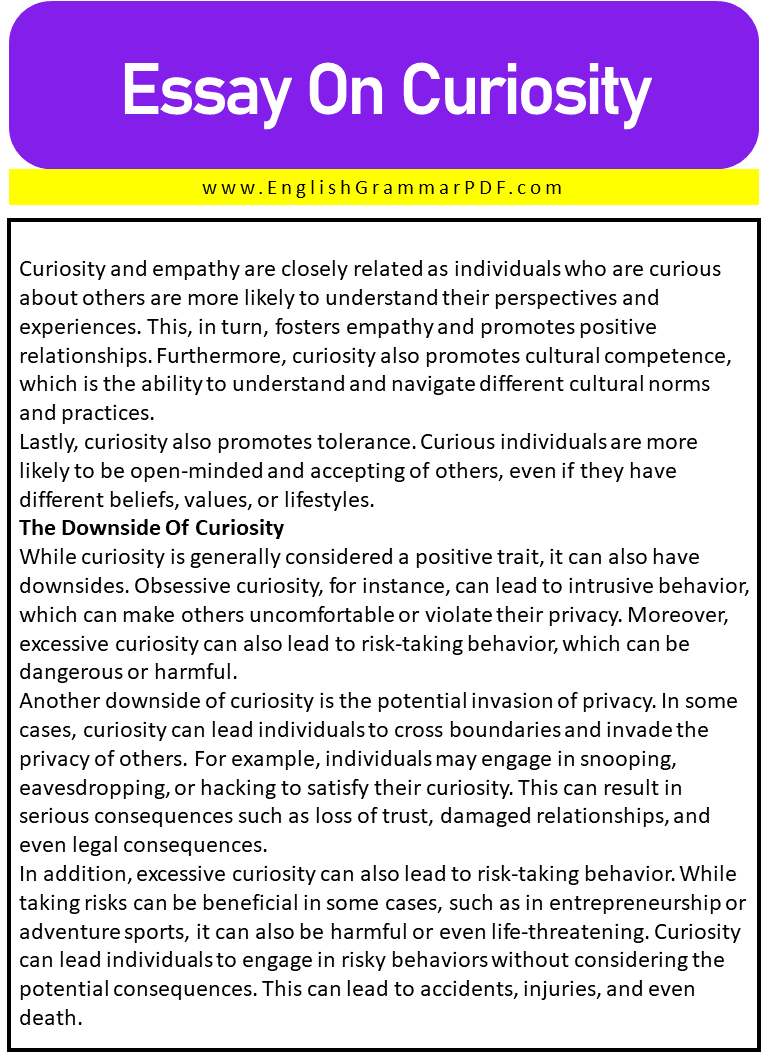
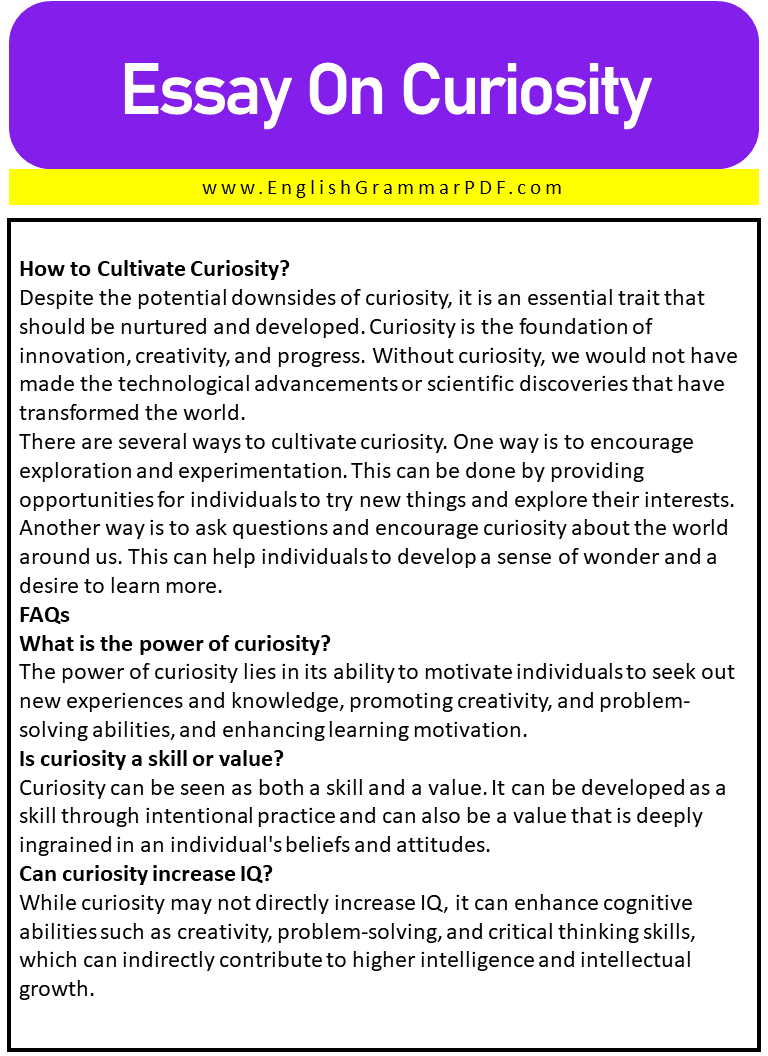
Read More Essays:


